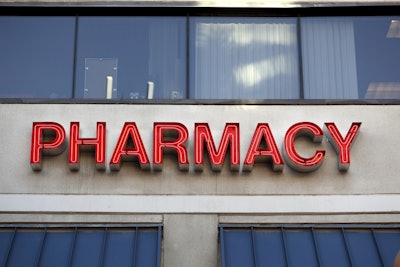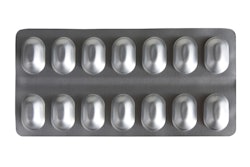
Specialty pharmaceuticals represent “the fastest-growing segment of the pharmaceutical market in the U.S. Industry projections have the growth rate at 20% per year.”
That’s according to information introducing an Academy of Managed Care Pharmacy (AMCP) Webinar, “Specialty Pharmacy: Next Generation Specialty Pharmacy,” scheduled for June 17, 2015.
AMCP is an approximately 6,000-member “professional association of pharmacists, healthcare practitioners, and others who develop and provide clinical, educational, and business management services on behalf of more than 200 million Americans covered by a managed pharmacy benefit.”
Points to ponder
• Defining specialty pharmacy. Here’s how the American Pharmacists Assn. (APhA) describes it online: “The Academy of Managed Care Pharmacy, in its Format for Formulary Submissions, and the Specialty Pharmacy Association of America both recently published definitions of specialty pharmacy. Commonalities seen within the definitions include the distribution of specialty pharmaceuticals and high-touch, patient-centered management that maximally benefits the patient’s medication experience. Ideally, this translates into improved care with measurable, positive clinical outcomes. As part of this patient-focused model, specialty pharmacies offer services above and beyond those typically offered at the retail level.
“Specialty pharmacy, which once occupied only a small niche in the marketplace, has become a burgeoning industry.”
• Top 10 specialty pharmacies. A March 12, 2015 story posted by Drug Channels, called, "Top 10 Specialty Pharmacies of 2014," includes a chart citing the Drug Channels Institute that shows the Top 10 Specialty Pharmaceuticals by revenues and market share in 2014. The top three: CVS Caremark Specialty Pharmacy/CVS drug stores, Accredo, and Walgreens Specialty Pharmacy/drugstores.
• Size of specialty pharmaceutical market. In a Feb. 3, 2015 report, Drug Channels estimated that last year, “retail, mail, and specialty pharmacies dispensed about $78 billion in specialty pharmaceuticals.”
• Specialty pharmacy trends. In its Oct. 24, 2014 online story, “Top 10 Trends in Specialty Pharmacy," Specialty Pharmacy Times listed all 10 of those trends. The top four follow:
1. “The cost of specialty drugs is skyrocketing.
2. “The specialty marketplace continues to heat up as large companies are buying up independent specialty pharmacies as specialty medications take up a bigger piece of the drug spending pie.
3. “The marriage of specialty pharmacy and accountable care organizations continues to strengthen.”
4. “As drug costs go up, adherence goes down. Reduced medication adherence is a by-product of escalating drug costs for patients feeling the economic pinch.”
• SPA conference. The Specialty Pharma Assn. (SPA) is a coalition of pharmaceutical manufacturers, distributors, developers, and allied support companies that seek to provide products and services that enhance the lives of the patients it serves. Its mission is to provide a venue for its members to identify, define, and address issues of common interest and to afford an advocacy forum for its membership. Its members come from a cross section of the industry including manufacturers, distributors, consultants, contract research organizations, financial institutions, legal and regulatory organizations, advertising and communication firms, and other allied support companies.
SPA’s 2015 Annual Conference will be held April 21-23 at The Grove Park Inn in Asheville, NC.
• Looking back/looking forward. In a Feb. 14, 2014 pm360online article, author Kevin Alder explained that “specialty pharmacy had its beginnings in the late 1980s and early 1990s when a few pharmacies began to offer and manage specialty medications in the treatment of cancers and infertility.” He said that researches began developing innovative specialty medications. With their development, “along with the need to ensure quality patient care, the birth of specialty pharmacy as a recognized ‘class of trade’ began.”
Alder said, “At this time there is no “specialty drug/specialty medication” definition put forward by the U.S. FDA, although typically a medication is considered as ‘specialty’ if it exceeds anywhere from $600 to $1,200 per month and requires special handling and administration.”
Ensuring medication adherence, compliance, and persistence, and tracking patient outcomes and quality of life as related to the patient’s medication treatment will require a care model in which, he says, “collaborations between specialty pharmacies, retail settings, hospitals, and [pharmaceutical/biotech] manufacturers are becoming increasingly commonplace.”





















